DEI debate comes to Utah Senate amid national controversy
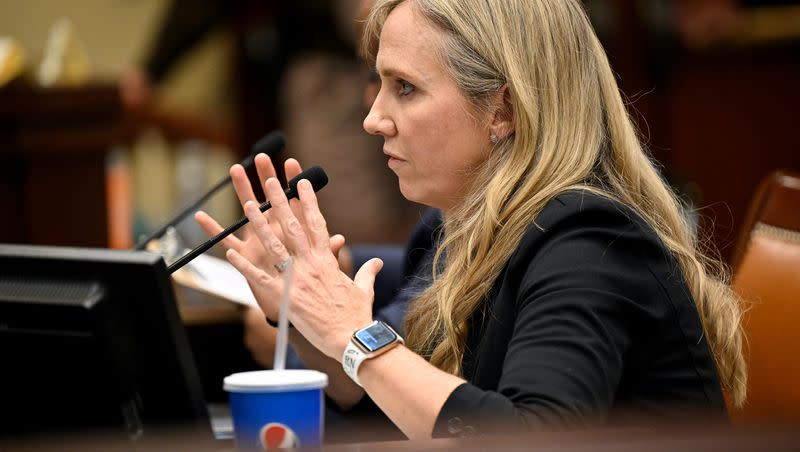
- Oops!Something went wrong.Please try again later.
Utah senators and members of the public explored disagreements over a proposed overhaul of diversity, equity and inclusion initiatives in the state during an hourslong committee debate and public hearing on Monday.
The bill in question, HB261, has advanced quickly through the Legislature since lawmakers arrived at the state Capitol last week. After receiving approval in the House on Friday, the legislation received a 8-1 party-line endorsement from the Senate Education Committee Monday.
Before the hearing, a few dozen opponents of the bill demonstrated at the Utah House and the University of Utah, where students spoke about how diversity, equity and inclusion offices help them feel safe and included.
Joining a wave of measures proposed across the country to defund DEI offices on university campuses, Rep. Katy Hall, R-South Ogden, said she introduced “Equal Opportunity Initiatives” as a “positive” alternative to DEI programs, as well as the legislation aimed at their complete elimination.
Related
“It focuses on removing barriers and ensuring fairness to all students,” Hall said in her presentation to the Senate committee.
Hall’s bill, sponsored by Sen. Keith Grover, R-Provo, in the Senate, aims to outlaw DEI trainings, requirements, programs and offices at public universities, schools “or any other institution of the state,” that engages in the bill’s list of “prohibited discriminatory practices.”
The bill also requires institutions of higher education to maintain neutrality on political topics, conduct surveys focused on free speech and ensure all students are able to access programs that provide resources for student success.
State funding can be withheld if institutions fail to address violations of these requirements, the bill says.
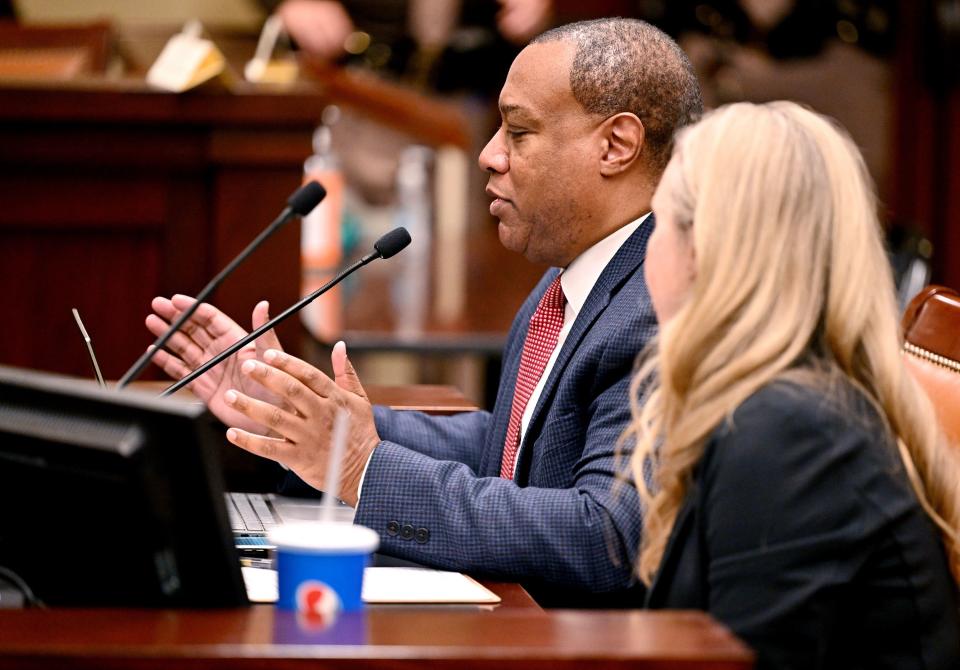
What are the arguments around Utah’s DEI bill?
Hall was accompanied by former Utah Republican Party Chair James Evans, who served as Utah’s first African American GOP state senator from 2002 to 2004.
“It expands the opportunity for all students at risk of graduating from college or university for them to receive additional assistance based on their individualized needs, not based on their group identity but on what their specific needs are,” Evans said.
Evans said Hall’s bill succeeded in honoring the intent of the Civil Rights Act of 1964, which “prohibited discrimination on the basis of race, color, religion, sex or national origin,” where DEI has failed.
“Diversity, equity and inclusion” refers to policies meant to create an environment of equal opportunity in colleges, schools or in the work place with a focus on groups that have faced historic discrimination. It can take the form of diversity statements in hiring, employee trainings and programs intended for particular identity groups.
Whereas proponents of DEI initiatives say they help to redress societal disparities and make all students or employees feel welcome, others point to evidence that DEI programs may rule out conservative viewpoints and have little to no effect on participants’ actual sense of belonging.
Senate Minority Whip Kathleen Riebe, D-Cottonwood Heights, the sole Democrat on the Senate Education committee, grilled Hall on the specifics of how her bill would affect educational research and outreach targeting certain demographics.
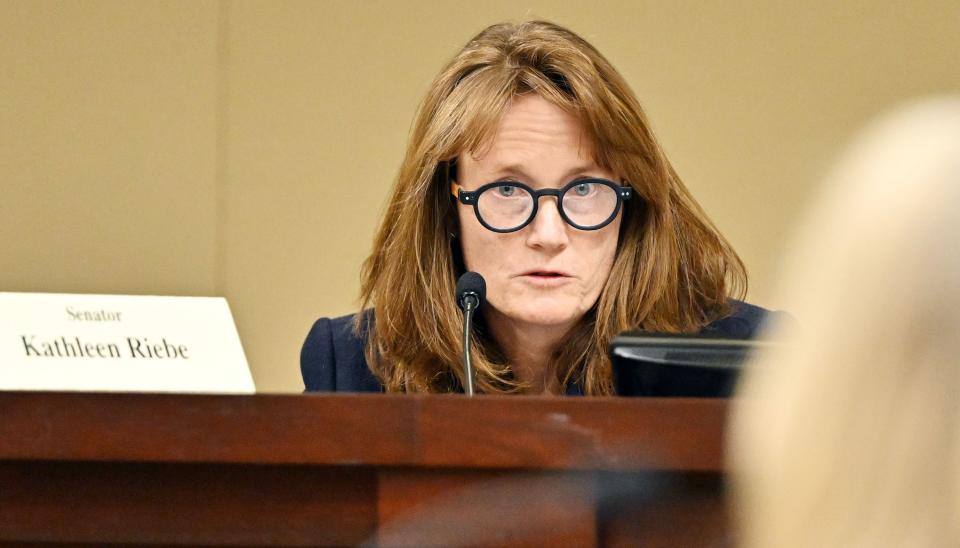
Hall responded, as she has to other criticisms, by saying current practices could continue unless they violate one of the bill’s “prohibited discriminatory practices,” which include promoting differential treatment in program participation based solely on a “personal identity characteristic” such as race.
“It’s not saying that you can’t look at their ethnicity; it’s saying you can’t only look at their ethnicity,” Hall said. “It’s saying take into account the whole child, the whole student.”
Related
Hall has previously said her bill would not impact federal grants, close cultural centers, defund scholarships or exclude students who are already receiving special campus resources. But it would make such help available to everyone based on individual needs.
In response to a question fielded by Riebe, Hall said under her bill, student organizations, like Latinos in Action, would be unable to exclude anyone from participation, even if they are not Latino or Hispanic.
Riebe said Hall’s bill contained ambiguous language that would create confusion among professors on what they can teach, among K-12 educators on what indicators they can consider to improve classroom experiences, and among Utahns as to what values its Legislature holds.
“When we make laws, they should be specific and they should have specific outcomes and they should be measurable,” Riebe said. “There are many things in this bill that are nebulous, timelines that are unclear and have outcomes that could be detrimental.”
Hall said the open-ended language was intentional, leaving public universities, schools and agencies with flexibility to implement success centers tailored to their institutions.
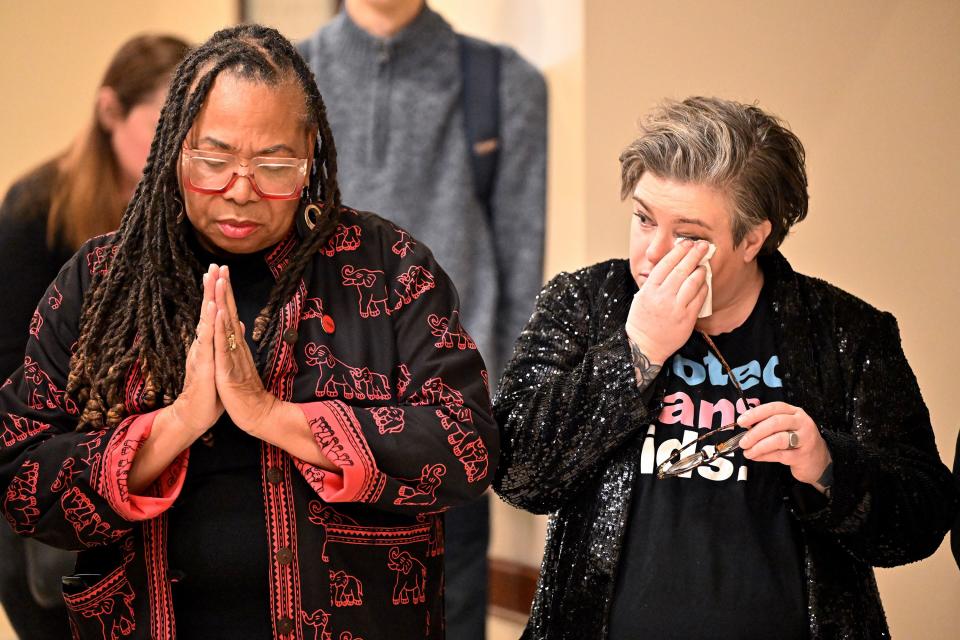
Public reaction to DEI bill
As it did during Wednesday’s House hearing, Hall’s bill brought out a large crowd to rise in favor or against the practice of DEI. Over 50 individuals, of the more than 150 present in the full room, were given the opportunity to speak their mind.
Related
Sara Jones, the CEO of InclusionPro, a DEI consulting business, said that DEI programs at universities are often the foundation for public-private partnerships that help disadvantaged groups succeed in the workforce.
“I’m concerned that HB261 will create unintentional damage to these long standing and successful partnerships between business and education,” Jones said. “The broad language of the bill could compel higher education to refuse the support of business partners based on personal identity because of legal risks.”
This concern was shared by Rita Heagen, Utah’s vice president of political action at the American Federation of Teachers. Heagen questioned Hall’s claim that university faculty support her measure and called on legislators to resist getting pulled along by polarizing pressures.
“By rushing this through, we believe, it will be harmful to Utah,” Heagen said. “It is a bit of a national push with some Utah sprinkles. It’s like the next step in the culture wars.”
But the other half of those giving public comment said Hall’s bill wasn’t stoking culture war flames; it was an attempt to put them out.
Keimon Dixson, the national committeeman of Utah’s chapter of Young Republicans, said some had falsely judged his academic accomplishments to be the product of his skin color and that Hall’s bill would help to change campus culture to focus more on “individual talent” than group identity.
“Everyone should be appreciated for their abilities and achievements, not reduced to their racial or ethnic identity,” he said.
Marci Campbell, an associate instructor of psychology at the University of Utah, pushed back against some of the bill’s critics, saying the shift in the campus environment over the last several years has been obvious from the point of view of professors, many of whom now feel unable to share their opinions.
She described university DEI trainings she had taken as teaching “an ideology where there’s diversity for some but not all, inclusion for some while excluding others.”
Related
Rallies were held Monday by opponents of the bill at the University of Utah and a “silent protest” at the Utah Capitol.
A dozen or so students gathered at the state’s flagship public university to share how diversity, equity and inclusion offices have helped them feel safe and included. Some said even if they never availed themselves of the offices’ services, their presence has been a comfort.
Shortly before the hearing began, some 35 demonstrators stood outside the committee room door, holding signs inscribed with phrases like “Decisions without data = bad policy” and “No to HB261.”
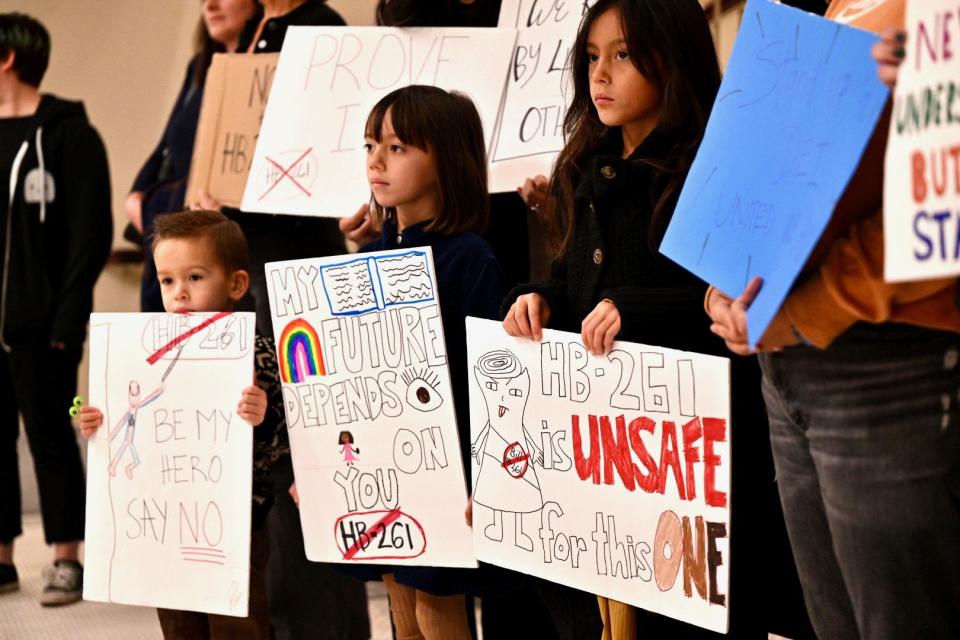
DEI: A national issue
DEI emerged as a major issue in the Utah Legislature last year when Hall introduced a bill that would prohibit diversity statements in state-funded entities, and Sen. John Johnson, R-North Ogden, sponsored legislation to prohibit funding of DEI offices in public higher education. Neither bill passed from both chambers.
Utah is just one of more than 30 states legislatures that have considered regulating DEI practices on college campuses in the past few years, according to the Bipartisan Policy Center. Outright bans on DEI funding or hiring requirements have recently become law in Florida, Texas, North Dakota, Tennessee, North Carolina and, most recently, Wisconsin.
Despite multiple community members referencing a recent New York Times article revealing a nationally coordinated effort among conservative activists to take aim at DEI, Hall and Grover said their bill takes a novel approach at reclaiming the best goals of DEI while abandoning its divisive side effects.
“I know there’s a lot of people that say that this is just a national agenda, this is just a push against the woke,” Hall said during an emotional conclusion of the hearing. “I wouldn’t bring this bill forward if that’s what it was, if I didn’t believe that this is a necessary and needed step forward for Utah, for our students, for our country.”
Contributing: Marjorie Cortez
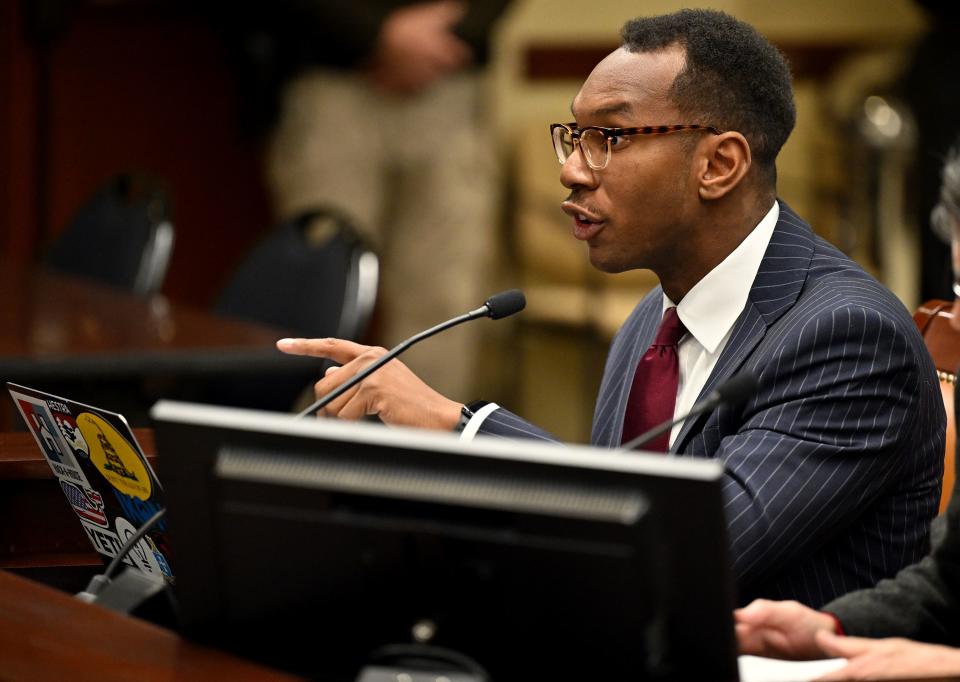
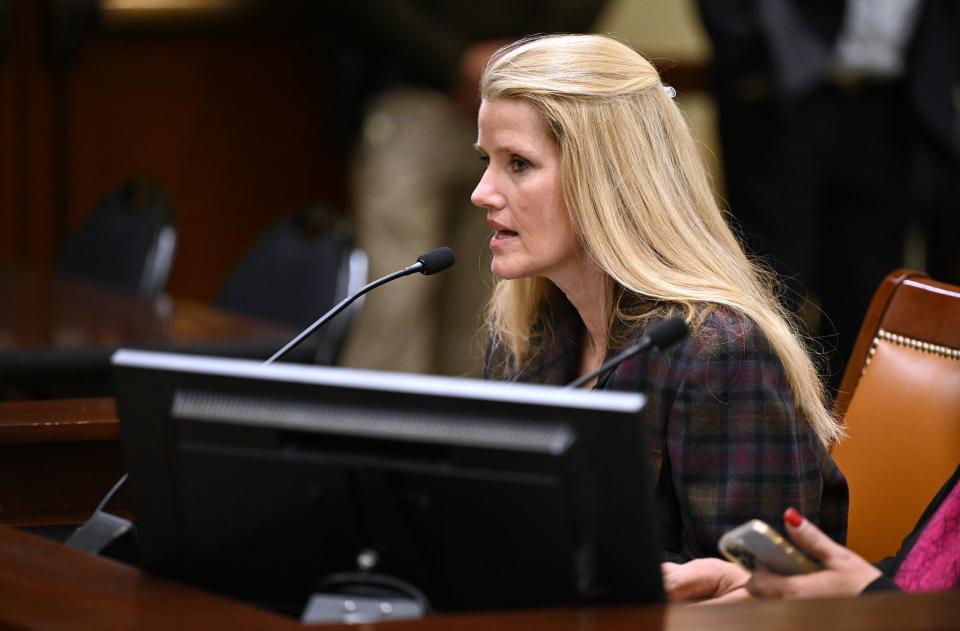
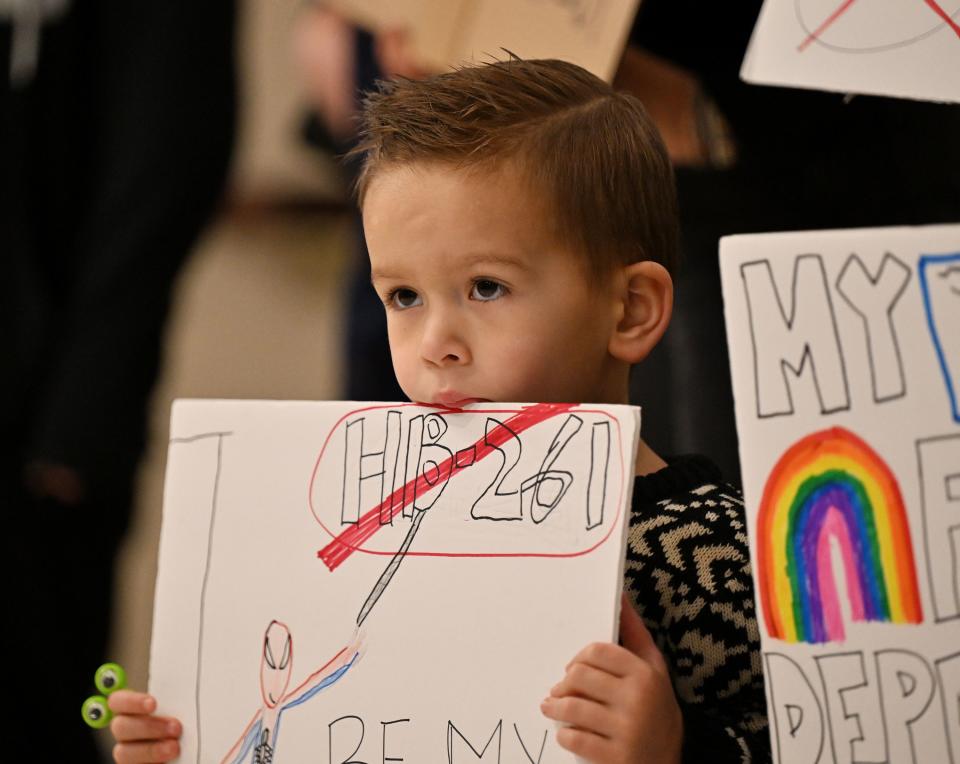
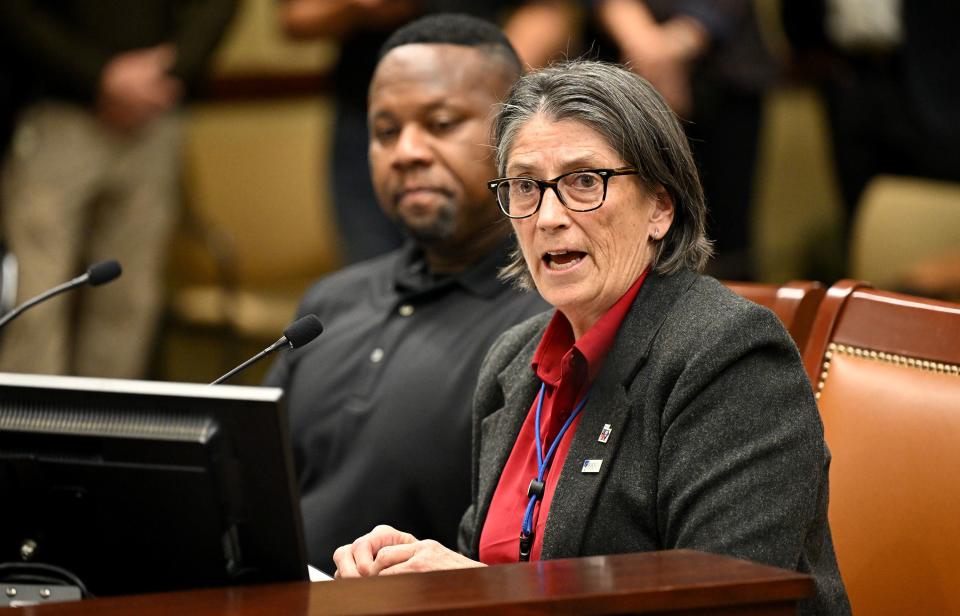
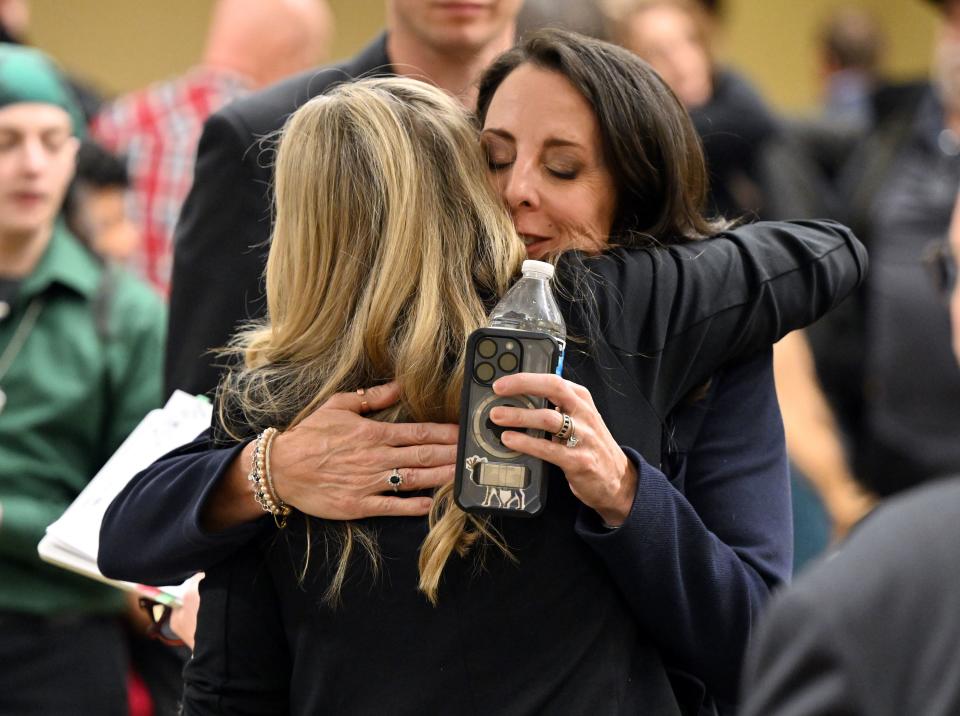

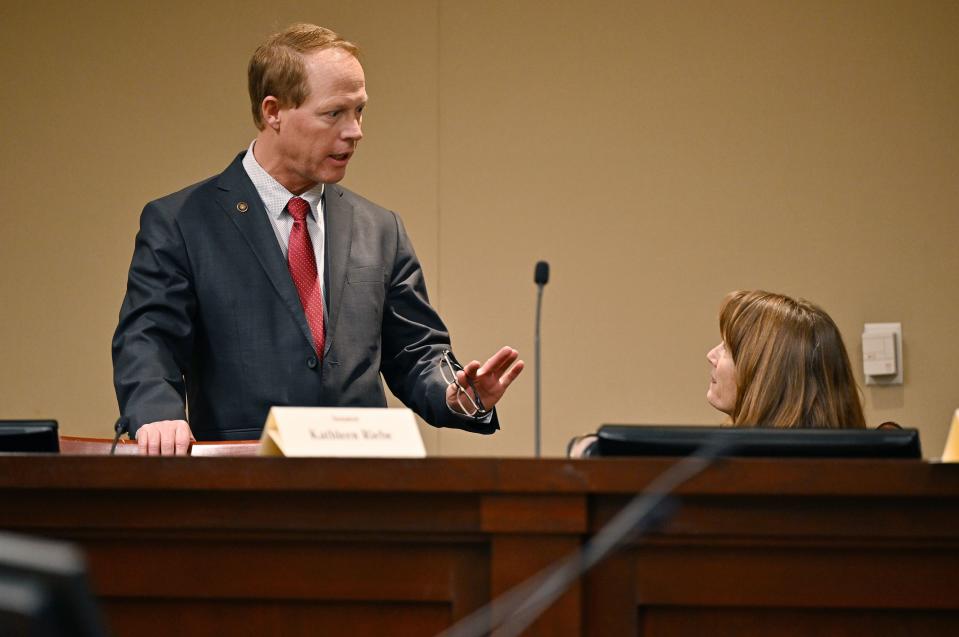
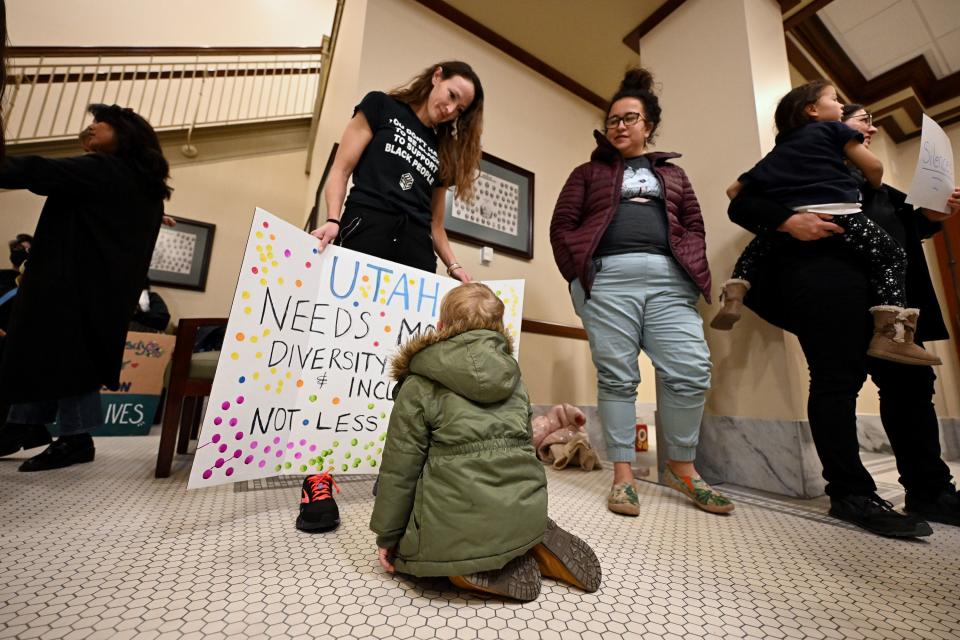
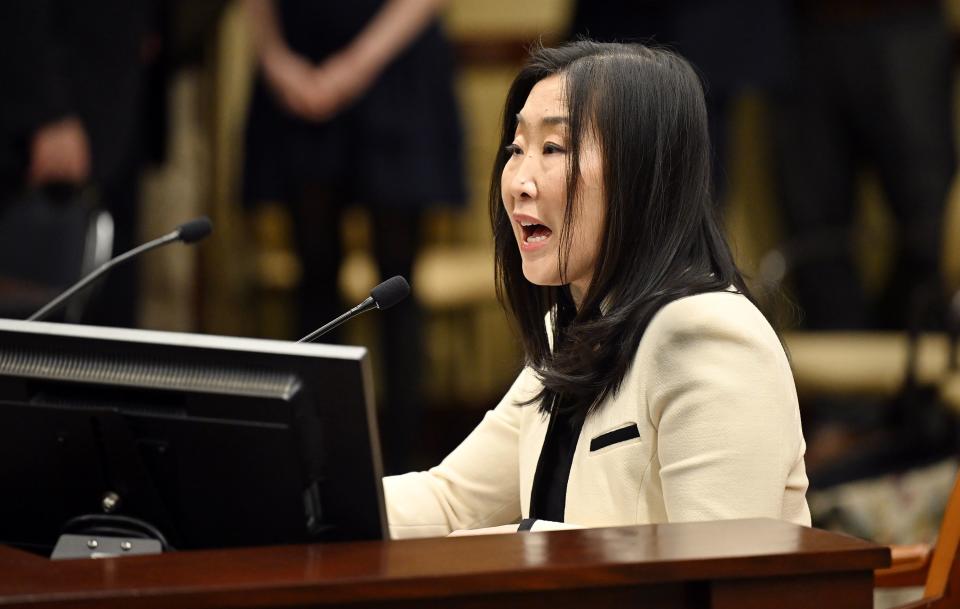
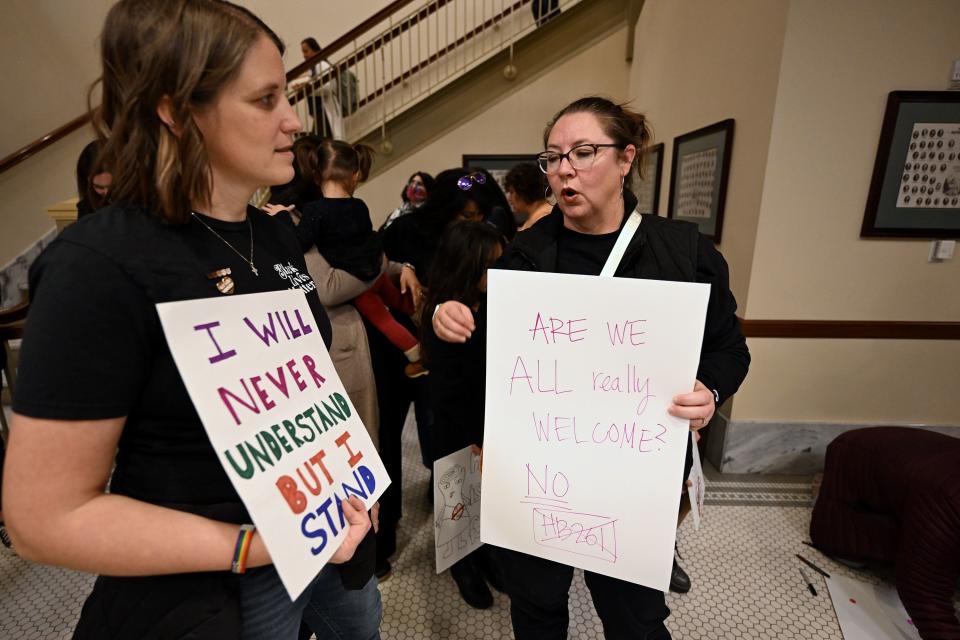
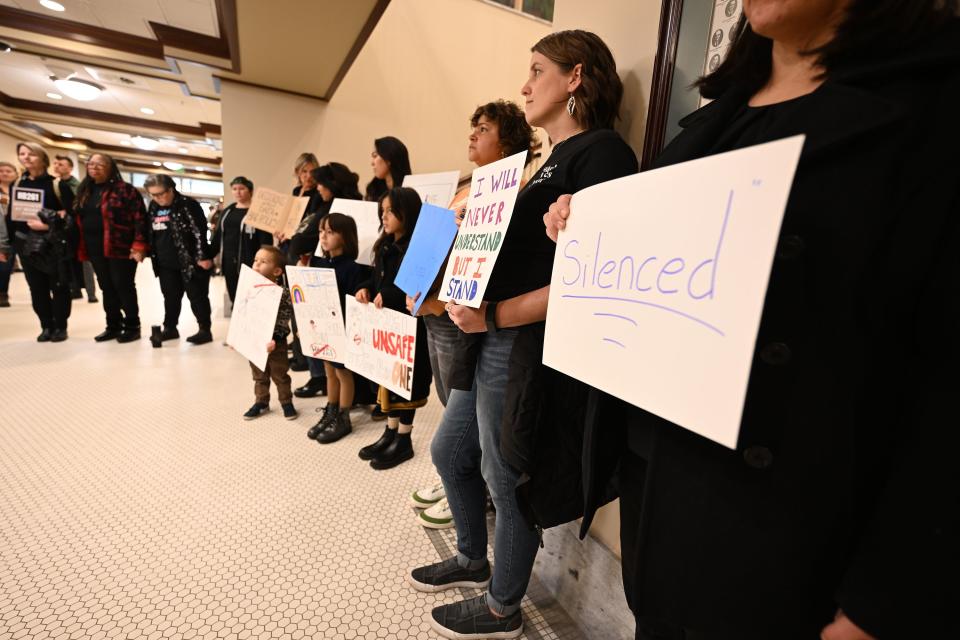
Correction: An earlier version of this story had an incorrect spelling of Keimon Dixson’s name.

